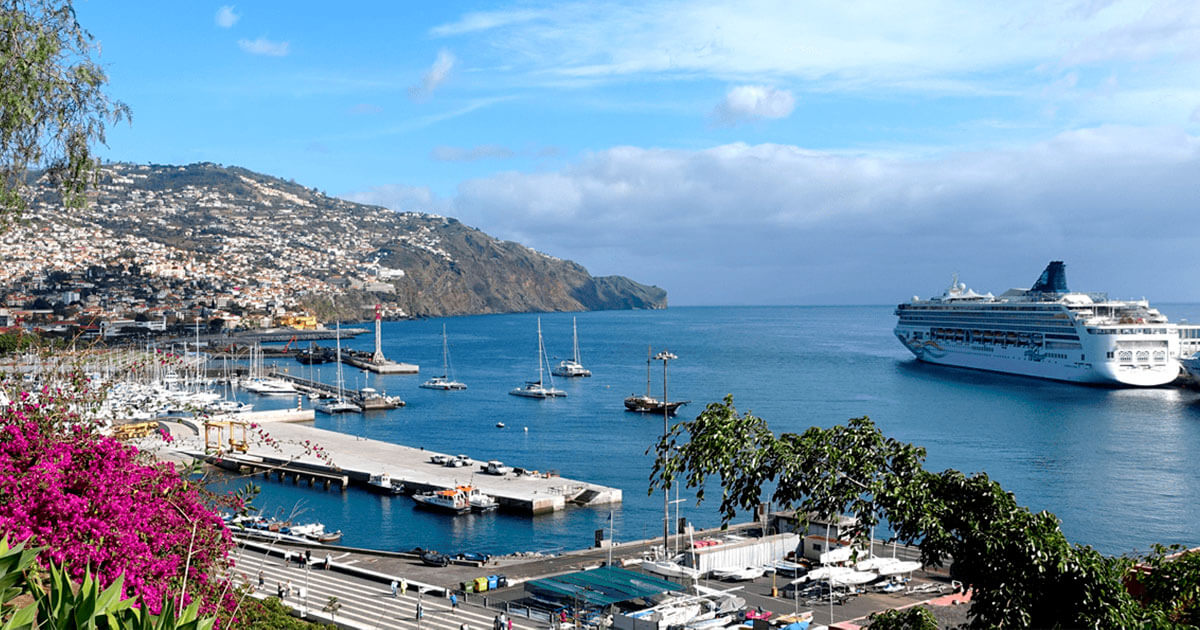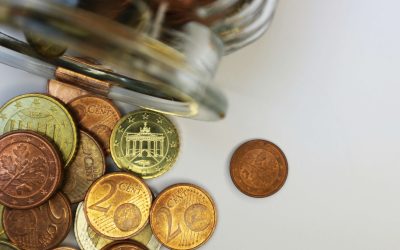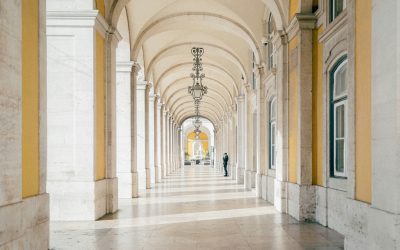“Of all islands, the most beautiful and free,” is the Madeira’s motto. Backing up this assertion, H.N. Coleridge once said: “I should think the situation of Madeira the most enviable on the whole earth. It ensures every European comfort with almost every tropical luxury.”
Have a look at our updated guide to living in Madeira in 2025.
Living in Madeira
Where is Madeira?
Madeira is an archipelago, and a Portuguese Autonomous Region, in the Atlantic Ocean. It is interesting to know that the island is closer to northern Africa than it is to Portugal’s mainland. It is 400 km (249 miles) from the Canary Islands, 800 km (497 miles) from Africa and 1,200 km (746 miles) from Lisbon.
Madeira’s unique geographical location is what turned Portugal into the first global empire in the 15th century. It is the meeting point between three continents – Europe, Africa and America. Cristiano Ronaldo International Airport (FNC) connects the island to international airports an to the Portuguese mainland.
How’s weather like in Madeira?
In terms of climate, Madeira is characterized by an all year-round spring-like weather which make it so famous among its residents and visitors. During Summer, Spring and Fall, temperatures vary between 17ºC (62.6ºF) and 24.ºC (75.2ºF). As for the Winter months temperatures will vary between 14.ºC (57.2ºF) and 20.ºC (68ºF).
Last, but not least, note that the number of hours of sunshine per year reaches values as high as 3300, a 70% larger value than the ones found in northern Europe.
Given the above it is easy to understand why Madeira is famously known as the “Pearl of the Atlantic”.
What is life like in Madeira?
Just 55 minutes from Funchal, you can explore the wild coastal north and the town of Porto Moniz. Or, in 40 minutes, you can reach the sunny and peaceful village of Jardim do Mar, which both kisses the vast Atlantic Ocean and is walled by mountains.
Day-to-day life in Madeira is stress-free for locals, expats, and tourists alike, and the cultural offerings are immensely diverse for an island. Museums with Flemish and religious art, churches hosting organ music festivals, monthly symphonic orchestra and chamber music concerts, gastronomical and traditional folk festivals throughout the year, and recurring art exhibitions are just some examples of Madeira’s active cultural scene.
If you tired of the cultural agenda, you can always find peace on the neighbouring island of Porto Santo. A two-hour ferry trip takes you to one of Portugal’s “7 Natural Wonders”—Porto Santo’s 9 kms of the healing-sand beach.
If you’re not up for a boat trip, you can indulge in a weekend at Reid’s Palace—Sir Winston Churchill’s outstandingly glamorous hotel of choice.
Having that said Madeira has a lot to offer to its residents. Almost everything you need is possible to find on the island.
And if you cannot find what you need, do not stress about it. Amazon, eBay and AliExpress deliver to the island and Cristiano Ronaldo Airport connects you to the major European capitals—including Paris, Brussels, London, Berlin, and Zürich…
What language is spoken in Madeira?
Portuguese is the official language and spoke by all on the Autonomous Region and due to being a tourist destination since the 19th century English is very common all across Madeira and Porto Santo, a certainly a given in the capital of Funchal.
Working and Business in Madeira
If you are planning to relocate to Madeira please note that it will be difficult to find a job, and even if you do it will most likely be in the tourism sector. Also, note that is not easy to find a permanent job in Madeira, but still possible.
One way, which is supported by the government, is to open your own business. Here tax benefits are plenty. Those looking into incorporating a company in the services sector and aiming for international clients can benefit from the lowest corporate tax rate in Europe, just 5%, through the Madeira International Business Centre.
If you are fortunate to be a digital nomad or a remote worker, then you can benefit from the tax regime applicable to expats, the Non-Habitual Resident tax regime. This can be combined with the Madeira International Business Centre if you are looking to attract qualified staff.
Cost of living in Madeira
The cost of living, from accommodations to amenities, are cheaper than in The Algarve
With rents and restaurant prices an average 10.5% lower than those in the Algarve where rents and restaurant prices are one of the best bargains in Western Europe. Madeira is one of the most affordable places to spend time in this part of the world. Utility costs are lower here, too—electricity is as much as 21.8% lower than in the Algarve, internet 11.2% less costly.
And VAT is one percentage point lower than on the Portuguese mainland.
Mainlanders find prices in Madeira similar to theirs and some things are even cheaper. As in every place in the world go where the locals go and everything will be cheap.
As for fruit or wine, these cost three or four times less than in Europe, for example.
For a term of comparison, Portugal ranks in the Top 30 Cheapest Countries in Europe (Numbeo), surpassing Spain, Malta, Greece, and France. Add this to the special tax regime available to new residents and businesses and your savings will increase even more.
As being fully integrated within the European Union, please note that the Autonomous Region of Madeira uses the same currency as the rest of Portugal, i.e. the Euro (€).
Housing in Madeira
Madeira Island’s real estate market has been booming in the last couple of years, offering a wide variety of real estate investment opportunities to those looking for a truly international real estate market and without the inflated prices that have been afflicting the Portuguese mainland.
Official statistics collected from the Portuguese National Statistic Institute and the Directorate of Statistics of the Madeira Regional Government showed that already in 2018, the median value of rents for new leases of family accommodation in Madeira was EUR 5.15 / m2, which is higher than the value registered for Portugal (EUR 4.39 / m2). These numbers positioned Madeira as the second region among the seven regions with the highest median of rental income, behind the Lisbon Metropolitan Area (EUR 6.06 / m2) and ahead of the Algarve (EUR 5.00 / m2), which came in the third position.
According to the same authorities, the median price of housing in Madeira remained among Portugal Top 3 regions. In 2018 the Algarve (EUR 1,500 / m2), the Lisbon Metropolitan Area (EUR 1,318 / m2) and the Autonomous Region of Madeira (EUR 1,203 / m2) were all above the national average of EUR 984 /m2.
The above-mentioned values are sustained by the fact that the Autonomous Region of Madeira is the solely year-round tourism destination in Portugal due not only to its permanent spring-like weather climate but also because of its tourism history that dates back to the 19th century when it was a coveted destination among European royalty and nobility. Among these illustrious guests you will find Empress Sisi of Austria, Emperor Maximilian of Mexico, and, later, Sir Winston Churchill stayed for extended periods, and more recently Queen Silvia of Sweden and Crown Princess Victoria of Sweden.
Funchal, the island’s capital, is the place to be. The city is not only the prime tourism centre, but also the political, economic and scholarly centre (all higher education institutions, including the University of Madeira, are located here) of the island. With a population of 111,892, Funchal is Madeira’s major city and home to almost 42% of the four-island archipelago’s population.
In Funchal’s civil parishes of Sé and São Martinho apartment rents can yield a monthly rental income (long-term rental) between EUR 1,800 to EUR 2,000 for a EUR 270,000 investment in 196 m2 apartment. Should you opt for short-term rentals, in the likeness of AirBnB, the same well-located apartment can yield between EUR 500 and EUR 1,000 per week.
Outside the municipality of Funchal, the long term rental income decreases per square meter decreases, namely in the municipalities of Santa Cruz (4.46 € / m2), Câmara de Lobos (3.81 € / m2) and Machico (3.68 € / m2).
However, just like the Madeiran capital, the city of Santa Cruz, especially in the civil parish of Caniço, can yield a good short-term rental income (EUR 1,200/week) due to the fact that this area of Madeira is popular with the Germanic market. The trick here is to invest in a villa with a good view over the Atlantic Ocean. In the Caniço civil parish, villas start at EUR 250,000 and depending on the view you have over the ocean they can go up half a million or more euros, especially in the highly coveted Garajau area.
Apart from the existing houses and apartments already available for sale, some stakeholders in the Madeiran real estate market are offering once in a lifetime investment opportunities that can turn into great short-term rental income sources: bespoke modern villas and traditional Madeiran manorial houses are known locally as Madeiran “Quintas”.
While those offering bespoke villas usually require an initial investment of at least EUR 350,000 for a fully personalized villa built from scratch and along the famous banana line, in the municipalities of Ponta do Sol and Ribeira Brava, a Madeiran Quinta will never be sold below EUR 1 Million thresholds.
The advantage of a bespoke villa project is that with a single investment you get the opportunity to build a house the way you like and, depending on the plot you get, you can build two additional luxury bungalows for short-term renting and with an expected yield of EUR 1.000/week.
On the other hand, Madeiran Quintas are usually set in nature, or “hidden” within the city center, and have a particular architecture, which mixes the local style and the British style. They are always surrounded by beautiful gardens, with paths covered with rolled pebbles, among centuries-old trees, flowers, ponds and even modern swimming pools. This type of real estate has always been favoured by Madeiran nobility, merchants and the British since the 18th century.
Most of the Quintas available for sale in the Madeiran real estate market are superbly preserved and combine history and tradition with modern amenities. Even though few of them are allocated to the rental, the yield regarding such investment options is never below EUR 1000/week, due to the peaceful and romantic scenery that inspires rest and happiness among travelers and owners.
Regardless of your investment option and whether you simply wish to diversify your investment portfolio or relocate to Madeira, know that the current Madeiran real estate market is booming with supply and demand, and those looking into rental income investments can count on the fact that a growing number of tourists, currently 13,3% opt for home rentals.
Transportation in Madeira: getting around
Madeira has an extremely good road system, delivered by EU-funding, which connects all parts of the island through a system of fast roads and tunnels. Needless to say that the best way to go around is either by car or bus.
Leisure and Culture
Island life in Madeira is never boring and completely stress-free for locals, expats, and tourists alike, and the cultural offerings are immensely diverse for an island. Museums with Flemish and religious art, churches hosting organ music festivals, monthly symphonic orchestra and chamber music concerts, English language theatre plays, gastronomical and traditional folk festivals throughout the year, and recurring art exhibitions are just some examples of Madeira’s active cultural scene.
Madeira expat community
There are many expats in Madeira and most of them are from the UK, Germany, Austria, France and to a smaller extent Scandinavia, Canada and the US. Moreover, there are a lot of people who are interested in moving to the island, especially from these mentioned countries.
Our team at MCS, with more than 20 years of experience in the sector, is able to assist in your relocation to Madeira. For more information click here, for information our services click here.

Miguel Pinto-Correia holds a Master Degree in International Economics and European Studies from ISEG – Lisbon School of Economics & Management and a Bachelor Degree in Economics from Nova School of Business and Economics. He is a permanent member of the Order of the Economists (Ordem dos Economistas)… Read more




